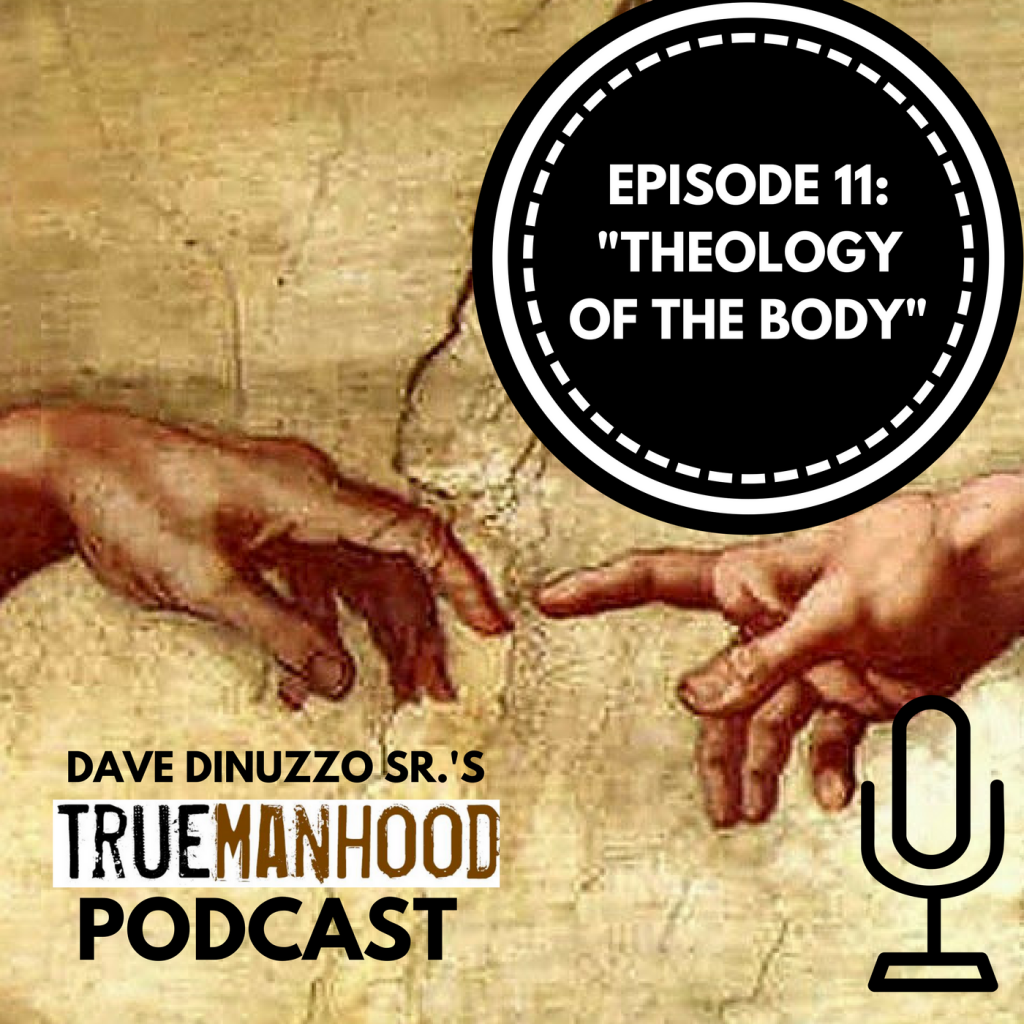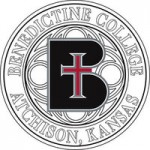The TrueManhood Podcast – Episode 11 Theology of the Body
 Dave talks about both what the Theology of the Body is and its importance in the lives of everyone. This vital teaching in the Roman Catholic Church could very well solve the problems in the world.
Dave talks about both what the Theology of the Body is and its importance in the lives of everyone. This vital teaching in the Roman Catholic Church could very well solve the problems in the world.
Podcast: Play in new window | Download
Subscribe: RSS
My Alma Mater on National TV
 This season of The Biggest Loser on NBC showcased the brother of a Benedictine College student and football player. My alma mater, Benedictine College, is one of the finest small colleges in the country. US News and World Report ranked it one of the best colleges in 2011. Benedictine College was a place where my life radically changed. I owe a great deal to the institution and especially to my BC friends.
This season of The Biggest Loser on NBC showcased the brother of a Benedictine College student and football player. My alma mater, Benedictine College, is one of the finest small colleges in the country. US News and World Report ranked it one of the best colleges in 2011. Benedictine College was a place where my life radically changed. I owe a great deal to the institution and especially to my BC friends.
In college, I was a lost young man. I thought I knew everything. My favorite saying was “Dave’s way or the wrong way.” I had a very lax attitude and was quick to point fingers. I was an angry rageaholic and alienated myself. I used my intimidation factor to get what I wanted, whether I hurt someone along the way or not. I was addicted to porn and took advantage of women. I was a bully.
I left the Catholic Church because I thought I knew better. I was living a double life; one way in public, another completely different way in private. It was a downward spiral and I became very alone and fell into despair. Luckily, I had men and women around me who loved me. They lived the love of Christ with joy… it was enticing and I never wanted something so badly in my entire life. I began asking questions, getting my doubts answered and along the way, became a man of prayer. My prayer life, along with educating myself and asking tough questions, as well as working to right-wrongs, allowed me to get to a place where I could make logical and well-formed decisions. Eventually, I returned to the Catholic faith and have never looked back. All of my questions were answered in Sacred Scripture, and enlivened by Sacred Tradition.
In this clip, you will see a college campus that is not only beautiful, but authentically Catholic. Behind the football field  (where I suited up in the #48 black jersey and helmet, and where I ran lots of stairs) you can just barely grab a glimpse of the Benedictine Monk’s Abbey.
(where I suited up in the #48 black jersey and helmet, and where I ran lots of stairs) you can just barely grab a glimpse of the Benedictine Monk’s Abbey.
This video clip is about more than just The Biggest Loser or about football. The clip is about what Adam is saying… it is like any tough journey or battle that we face in our lives.
He mentions many things, but the thing that strikes me the most is the ‘pay it forward’ theme. Because of what I’ve been given, I try to give it back to others in need. The reason why I do what I do is so that if a man is where I once was, I can help him out of it, or if a man has never been to where I was, I can help him never to go there.
TrueMan up!
Where are the Men? Part 2
In the last post, I mentioned how while attending a Saturday evening Vigil Mass at a local parish, I noticed that only 4 of 31 servant-leadership roles were filled by men. Of those 4 positions of service, 1 was a young boy altar server, 2 were Extraordinary Ministers of Holy Communion and 1 was in the happy happy clap clap band. The problem is not the women, the problem is the men. Here’s why…
 When men are absent from servant-leadership (in anything, not just at Mass) the ‘thing’ does not function properly. When a father is absent from his family, when a husband is absent from his wife, when a priest is absent from his parish, when a coach is absent from his team, when a boss is absent from his employees, when a commander is absent from his troops… the family, marriage, parish, team, company and unit do not function correctly. At Mass, specifically, we must correct the dysfunctions because they are widespread and have a large scope of influence. The way to correct the dysfunction is to encourage and challenge men to act in the way in which God created them to be. To grasp this picture, let’s look at the creation account in the Book of Genesis.
When men are absent from servant-leadership (in anything, not just at Mass) the ‘thing’ does not function properly. When a father is absent from his family, when a husband is absent from his wife, when a priest is absent from his parish, when a coach is absent from his team, when a boss is absent from his employees, when a commander is absent from his troops… the family, marriage, parish, team, company and unit do not function correctly. At Mass, specifically, we must correct the dysfunctions because they are widespread and have a large scope of influence. The way to correct the dysfunction is to encourage and challenge men to act in the way in which God created them to be. To grasp this picture, let’s look at the creation account in the Book of Genesis.
God created Adam. From Adam’s side, He created Eve. Adam was commanded by God to “shamar” the garden. Shamar is Hebrew for cultivate, protect, care for, etc. It was Adam’s job to cultivate the land, protect the garden, his wife and all of creation, but from the onset, Adam dropped the ball. When the serpent convinced Eve to eat of the fruit, where was Adam? Gone in another place in the garden? No. Was he over at some buddy’s house drinking a cold one, watching the big game? No. He was right beside her! [After all, she turned and handed him the fruit that she had just eaten from.] He was neglecting to protect the garden and his wife and failed to do what God created him to do. The Fall = Adam’s fault! When this sort of behavior (when men fail to cultivate, protect and care for) continues to prevail, the Church suffers greatly.
The choices Adam made are, in some way, the same decisions that many Catholic men today are making. Instead of cultivating the Church, protecting the Church and caring for the Church, men sit back and allow women to ‘do’. If you look at parishes and/or dioceses that are incredibly strong, that have great priests, that have large properly-functioning families and they have large numbers of seminarians, you’ll see that it is almost undoubtedly because men are involved as leaders!
The problem with men sitting back and allowing women (who are willing and ready to step in) to fill the gap is that the general population of men either don’t attend Mass or simply lose interest, although their backside is filling a spot in the pew. This sort of behavior teaches children that men don’t need faith and that faith is a ‘woman’s thing’. Many men believe that faith, religion, prayer, devotion, etc. is feminine and actually, anti-masculine. They couldn’t be further from the truth. As I have stated many times before, being manly means that a man is virtuous. Faith, Hope and Love, the Theological Virtues, are the real signs of manliness. In an upcoming post, I will continue with the thought of what happens when men and women don’t fulfill their roles and how it affects the Church as a whole, titled “The Church: By Women, For Women.”
TrueMan up!
How Men Were Created To Pray
 In response to a comment, stemming from a recent post: The question was asked, “How were men created to pray?” Please note, this post, as with all my posts, comes from my experiences and may or may not take into account every aspect of the topic. If you have additional thoughts, questions, doubts or replies, please write them in a comment below.
In response to a comment, stemming from a recent post: The question was asked, “How were men created to pray?” Please note, this post, as with all my posts, comes from my experiences and may or may not take into account every aspect of the topic. If you have additional thoughts, questions, doubts or replies, please write them in a comment below.
I believe that men were created to pray in a manner that is wild, unrelenting and strong. What do I mean by that? I mean that a man has to pray in the same way that he was created. It doesn’t make sense to do it any other way. We were created, as evidenced in the creation story in The Book of Genesis, to protect, defend and guide. (See Genesis chapter 2, specifically verse 15). Adam was instructed by God to do all these things as the man, the one who has dominion over the earth and the creatures of the land, air and sea. This was no small task. Adam was given a great amount of responsibility. Until the fall, Adam relied totally on God to direct and guide him. We should take this as a guide – that in all things, we should ask God to direct and guide us. After the fall, Adam was distanced from God and he toiled in the fields. This is where we find ourselves today. We toil, in whatever profession we have, and specifically, we toil in a real way when it comes to our conversations with God. Why is this?
The Catechism of the Catholic Church, in paragraph 397, explains this clearly. It says, “Man, tempted by the devil, let his trust in his Creator die in his heart and, abusing his freedom, disobeyed God’s command.” We do this daily! No wonder it’s so hard to pray!
If we know that we must trust God and that we must have reckless abandonment to God’s commands, then it will help us to pray. If we know that we were created to protect, defend and guide others, it will help us to pray. Now, some practicals:
- Find what works for you. We’re all different and there are many different ways to pray. Whatever your preference, do it often!
- Remember that prayer is a relationship with God. It takes two; God always does His part. Are you doing yours?
- Make your life a prayer. Every chance you get, talk/listen to God. (Guess what, you’ve got lots of chances to do this during your day!)
- A Man was created with a wildness within his heart – live wildly for God. Your prayer can be wild, rugged and intense.
- Do it often. Did I mention this already?
- Prayer is NOT an emotional thing; emotions may come about during/after prayer, but prayer itself is not emotional. Our prayer is based on our faith – if our faith is founded on the Truth, then it is stable and unchanging and our prayer must follow that model. If our faith isn’t founded on the Truth, then our faith (belief in God and His dominion over us) can change as quickly as the wind.
- Use helpful “tricks” to guide your prayer. One easy one is ACTS – Adoration Contrition Thanksgiving Supplication. Adoration is praising God, adoring Him, fervent worship of Him and His glory. Contrition is asking for forgiveness for our sins; NOT in place of Confession! Thanksgiving is thanking God for the blessings in our lives. Supplication is asking God for the things that we need in life.
I suggest that you read up on men of the Bible, as well as Catholic saints, to get more ideas on how men pray. Find one of these men that you share similarities with and try to emulate him and his style of prayer. These men came before us and succeeded (and sometimes failed) in order to pave the way for us.
Man up!
Are You Like Adam?
Adam, you know, THE Adam. The first man. God’s creation. He was given dominion over all the animals, and the land, God gave him the crown of creation, Eve, as his wife and God asked him to “shamar” the garden. “What’s shamar, Dave?” In layman’s terms, it means to cultivate, protect and/or defend. [If God asked a guy to shamar his prized hot rod, would anyone drive or touch it? Probably not. Certainly, no one would have the opportunity to scratch it or damage it in any way.] Why didn’t Adam shamar the garden?
The serpent made his way in (Genesis 3) and began speaking to the woman. Often times, it’s portrayed as if Eve were alone in the garden and that Adam was somewhere else. The serpent, being cunning as he is, began to call into question what God said to them. Eve tried to correct him, but was unsuccessful in her explanation. (Read the passages in Genesis closely to pick up on this.) Eventually, Eve gave in and ate the fruit from the tree. Adam ate it too. See, Adam was there the entire time. He sat back and allowed the serpent to twist God’s words and confuse Eve. Had he been shamaring, as asked by God, the serpent would have never had the chance to even speak to Eve.
Shamar… do you do it like Adam or the guy with the hot rod?
Man up!




